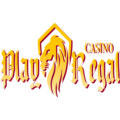The Best Known Online Casino Gaming Licenses The Ultimate Guide
When choosing an online casino, ensuring that it holds a reputable gaming license is crucial for a safe and fair gaming experience. The best-known online casino gaming licenses, including the Kahnawake Gaming Commission, Malta Gaming Authority, UK Gambling Commission, Curacao eGaming, and Alderney Gambling Control Commission, provide players with the assurance that their chosen casino adheres to strict regulations. These licenses ensure that casinos use fair gaming practices, secure player data, and offer transparent, responsible gambling environments. Whether you’re looking for reliable payout processes, secure transactions, or protected player rights, playing at a casino with one of these top licenses guarantees a trustworthy experience, making your gaming experience safe, secure, and enjoyable.
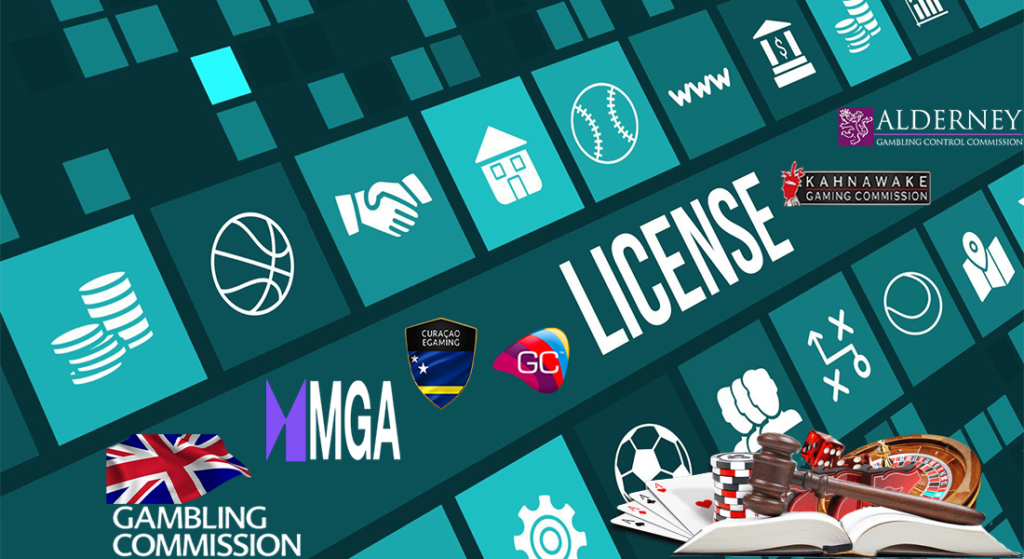
The Best Known Online Casino Gaming Licenses
When it comes to choosing the right online casino for your gaming experience, one of the most important factors to consider is the casino’s gaming license. A reputable gaming license is a clear sign that the casino operates under strict regulations and follows fair practices. The best-known online casino gaming licenses ensure that players are provided with a safe and secure environment to enjoy their favourite games. These licenses also guarantee that the casino is monitored for compliance with industry standards, protecting players from potential fraud and ensuring fair play.

The best-known online casino gaming licenses are issued by regulatory authorities that oversee the operations of online casinos across different regions. These organizations impose strict requirements that casinos must adhere to in order to maintain their license. They are responsible for ensuring that casinos offer fair games, handle player funds responsibly, and protect the personal and financial data of their players. For players, the presence of one of these licenses provides peace of mind, knowing that the casino is legally bound to operate with integrity and transparency.
One of the most respected and widely known online casino gaming licenses is the UK Gambling Commission (UKGC). This regulatory body oversees gambling activities within the United Kingdom and is recognized globally for its high standards. The UKGC ensures that licensed casinos operate with fairness, offer games that are independently tested for randomness, and provide transparent terms and conditions. Casinos with a UKGC license must also take responsible gambling seriously, offering tools for players to set limits on their betting and providing support for those who may develop gambling problems.
Another prominent licensing authority is the Malta Gaming Authority (MGA). Malta has become a hub for online gambling due to its favorable tax rates and comprehensive regulatory framework. The MGA is known for its rigorous licensing process, which includes regular audits and inspections of casinos to ensure compliance with fair play and player protection standards. Online casinos licensed by the MGA must adhere to strict anti-money laundering measures and ensure that their games are fair and random, providing players with a secure and trustworthy environment.
The Kahnawake Gaming Commission is another well-regarded regulatory body, particularly for casinos that cater to players in Canada and other North American markets. Based in the Mohawk Territory of Kahnawake in Canada, this commission is one of the oldest and most respected gaming authorities. The Kahnawake Gaming Commission ensures that licensed casinos adhere to strict regulations governing fair play, security, and responsible gambling. Casinos with a Kahnawake license are subject to regular audits, and the commission is known for its commitment to providing a transparent and reliable gambling environment.
For online casinos that cater to international players, the Curacao eGaming license is one of the most widely recognized. Although Curacao’s licensing process is often seen as less stringent than other authorities, it still offers a level of credibility for casinos that operate on a global scale. The Curacao license is commonly held by many online casinos, especially those targeting markets outside of Europe and North America. While it may not have the same level of oversight as the UKGC or MGA, Curacao’s licensing is still seen as a positive sign of a casino’s legitimacy.
The Alderney Gambling Control Commission (AGCC), based in the Channel Islands, is another trusted licensing authority. Alderney is known for its thorough and rigorous testing processes, which include regular reviews of casino software to ensure fairness. The AGCC enforces strict rules around the operation of online gambling sites, ensuring that they comply with both local and international regulations.
When selecting an online casino to play at, always ensure that the casino holds one of these well-known gaming licenses. A reputable license not only guarantees that the casino operates legally, but it also ensures that you, as a player, are protected from fraud, unfair practices, and unethical behavior. It’s always a good idea to check for a valid license before making any deposits or wagers, as this is one of the best ways to ensure that your gaming experience is secure, transparent, and trustworthy.
The best-known online casino gaming licenses serve as a stamp of approval, confirming that a casino operates according to strict legal and ethical standards. Whether it’s the UK Gambling Commission, Malta Gaming Authority, Kahnawake Gaming Commission, Curacao eGaming, or Alderney Gambling Control Commission, these licenses provide players with confidence that they are playing at a casino that takes their safety and fairness seriously. So, when choosing your next online casino, always check for one of these reputable licenses to ensure a secure and enjoyable experience.

What Are Online Casino Gaming Licenses?

Online casino gaming licenses are legal authorizations granted by regulatory authorities to online casinos, allowing them to operate and offer gambling services to players. These licenses are essential in ensuring that online casinos adhere to strict regulations regarding fairness, security, and player protection. Without a valid gaming license, an online casino is considered unregulated and may pose significant risks to players, including the potential for fraud or unfair gaming practices. A gaming license acts as a stamp of approval from a regulatory body, offering players confidence that the casino is operating legally and in compliance with industry standards.
The Importance of Online Casino Gaming Licenses: The purpose of online casino gaming licenses is to create a framework that promotes transparency, fairness, and safety within the online gambling industry. Licensing authorities regulate the operations of online casinos by setting rules and standards that these operators must follow. These include ensuring the fairness of games, maintaining the privacy and security of players’ data, and promoting responsible gambling practices. A valid license also protects players in case of disputes, offering a system of recourse in the event of fraud, non-payment, or other issues.
For players, choosing a licensed online casino is crucial to ensure that their gambling experience is both secure and enjoyable. Without a license, there is no guarantee that the casino is operating legally or that it will adhere to regulations designed to protect players. Licensed casinos, on the other hand, are subject to regular audits and inspections by the issuing authority, which helps to maintain a level of trust in the online gambling industry.
How Online Casino Gaming Licenses Work
Online casino gaming licenses are typically issued by regulatory bodies in specific regions or jurisdictions, and each body has its own set of criteria for granting licenses. To obtain a license, an online casino must submit an application to the relevant authority, provide information about its operations, and undergo a thorough review process. This process often includes background checks, software audits, and financial checks to ensure that the casino is financially stable and capable of paying out winnings to players.
Once a license is granted, the online casino must comply with the regulations set forth by the licensing authority. These regulations may include maintaining fair gaming practices, providing secure payment methods, and offering tools for responsible gambling. The casino must also meet specific technical standards, such as ensuring that its games use certified random number generators (RNGs) to ensure fairness and randomness. Failure to comply with these regulations can result in the revocation of the casino's license.
Different Types of Online Casino Gaming Licenses
There are several well-known gaming authorities around the world that issue licenses to online casinos. Some of the most recognized and respected licensing authorities include:
- The UK Gambling Commission (UKGC): One of the most respected licensing bodies, the UKGC ensures that online casinos offering services to UK players operate in a fair, transparent, and responsible manner. It is known for its strict regulations and high standards, making it one of the most prestigious licenses in the industry.
- The Malta Gaming Authority (MGA): Based in Malta, the MGA is another prominent regulatory body that licenses online casinos. It is known for its rigorous licensing process, ensuring that casinos licensed by the MGA adhere to high standards of fairness, security, and player protection.
- The Curacao eGaming License: Curacao is one of the oldest and most popular licensing jurisdictions in the online gambling world. While it is less stringent than the UKGC or MGA, the Curacao eGaming license is still widely used by online casinos, particularly those targeting international markets.
- The Kahnawake Gaming Commission (KGC): Located in Canada, the KGC is a respected licensing authority that is particularly known for its focus on online casinos catering to players in North America. Casinos with a KGC license must comply with strict regulations to maintain their license.
- The Alderney Gambling Control Commission (AGCC): The AGCC is based in the Channel Islands and is known for its thorough and stringent licensing process. Online casinos licensed by the AGCC are subject to regular audits and inspections to ensure compliance with industry standards.
What Happens if a Casino Does Not Have a License?
Operating without a valid license means that an online casino is not under the oversight of a regulatory body, which can be risky for players. A casino that operates without a license is not required to follow any of the industry standards that licensed casinos must adhere to, such as fair gaming practices, responsible gambling policies, or player protection regulations. This leaves players vulnerable to potential fraud, non-payment of winnings, or other unethical practices. In such cases, players have little recourse if a dispute arises, as unlicensed casinos are not legally obligated to resolve player complaints.
Online casino gaming licenses are an essential aspect of the online gambling industry. They ensure that casinos operate legally, fairly, and securely, providing players with a safe environment to enjoy their gaming experience. A valid license from a reputable authority is an indication that an online casino adheres to strict standards regarding game fairness, financial transparency, and player protection. For players, choosing a licensed online casino is crucial in protecting their interests and ensuring a secure gambling experience. Whether it's the UKGC, MGA, Curacao eGaming, KGC, or AGCC, these gaming licenses assure that players are engaging with casinos that prioritize fairness, security, and responsible gaming.
How Online Casino Gaming Licenses Work?

Online casino gaming licenses are crucial for ensuring that online casinos operate in a legal, fair, and secure manner. These licenses are issued by various regulatory authorities around the world and serve as a stamp of approval that allows an online casino to offer gambling services. They signify that the casino is not only adhering to industry standards but also providing a secure and reliable platform for players. In this explanation, we’ll explore how online casino gaming licenses work, including the process of obtaining a license, the role of regulatory bodies, and the importance of compliance.
The Licensing Process
The process of obtaining an online casino gaming license involves multiple steps and can vary depending on the licensing jurisdiction. However, the general procedure is similar across most regulatory authorities. First, an online casino must submit an application to a licensing authority. This application typically includes detailed information about the casino’s operations, the software used for games, the casino’s financial stability, and the backgrounds of the key personnel involved in the casino’s management.
Once the application is submitted, the licensing authority performs a thorough investigation to ensure that the casino is capable of operating in a secure, fair, and responsible manner. This process can include background checks on the owners and operators, a review of the casino’s financial history, and an audit of the casino’s gaming software to ensure that it is fair and complies with industry standards. Many jurisdictions require online casinos to use independent auditors to verify that their games are using Random Number Generators (RNGs) that provide fair outcomes.
Regulatory Bodies and Their Role
Licensing authorities, also known as regulatory bodies, play a crucial role in overseeing online casino operations. They are responsible for enforcing the regulations that online casinos must adhere to, ensuring that they operate legally, and providing a means of recourse for players who may have disputes with the casino.
Some of the most well-known regulatory bodies in the online gambling industry include:
- The UK Gambling Commission (UKGC): One of the most respected and stringent licensing bodies, the UKGC ensures that online casinos offering services to UK players comply with a wide range of regulations, including those related to player protection, responsible gambling, and fairness in gaming.
- The Malta Gaming Authority (MGA): Based in Malta, the MGA is one of the most reputable licensing bodies in the European Union. It ensures that casinos licensed by them adhere to strict operational standards and provide a safe environment for players.
- The Curacao eGaming Authority: Curacao is one of the most widely used licensing jurisdictions, offering a less stringent licensing process compared to the UKGC or MGA. However, it still provides basic regulations to ensure fair play and secure transactions.
- The Kahnawake Gaming Commission (KGC): Based in Canada, the KGC is well-regarded in North America and licenses online casinos that operate within the region. KGC licensed casinos must comply with strict rules governing fairness and customer protection.
These regulatory bodies typically set out a comprehensive set of guidelines that online casinos must follow. These guidelines often include rules about game fairness, responsible gambling, data protection, and customer service. In addition to providing licenses, regulatory bodies also ensure that licensed casinos are audited regularly and comply with the relevant laws and standards.
Compliance and Audits
Once an online casino is granted a gaming license, it is required to comply with the regulations set by the licensing authority. These regulations are designed to ensure that the casino operates with integrity, offering fair gaming and protecting players’ interests.
One key aspect of maintaining a license is the requirement for regular audits. Independent auditors are hired to review the casino’s operations, including game fairness, financial records, and player transactions. For example, many jurisdictions require casinos to use Random Number Generators (RNGs) to ensure that games like slots, blackjack, and roulette produce fair and random outcomes. These RNGs are audited to ensure their effectiveness and integrity. Additionally, auditors may also check if the casino is complying with the requirements for anti-money laundering (AML) and responsible gambling.
Licensing authorities also impose measures for player protection. This includes ensuring that casinos offer safe payment methods, protect players’ personal and financial data, and offer mechanisms for self-exclusion or limits for problem gambling. If a player has a complaint or disputes the outcome of a game, the casino is often required to offer a formal dispute resolution process, which can involve third-party mediation or arbitration.
The Role of Responsible Gambling
Responsible gambling is a critical component of online casino licensing. Regulatory bodies require licensed casinos to implement responsible gambling measures to prevent problem gambling. This includes setting deposit limits, offering self-exclusion options, and providing access to resources for players who may need help with gambling addiction. In some jurisdictions, casinos must also display responsible gambling messages and provide links to organizations that help individuals with gambling-related issues.
Consequences of Non-Compliance
If an online casino fails to meet the requirements set by the licensing authority, it can face severe consequences. The most immediate consequence is the revocation or suspension of the casino’s license, which means the casino can no longer legally operate in the jurisdiction. In some cases, the casino may be subject to fines or penalties. The loss of a license can be damaging to a casino’s reputation, leading to a loss of player trust and a decline in business.
Online casino gaming licenses are essential for the integrity and safety of the online gambling industry. They ensure that casinos operate in a secure, transparent, and fair manner, and they provide players with confidence that their money and personal data are protected. Licensing authorities play a vital role in ensuring that casinos adhere to strict regulations, undergo regular audits, and maintain high standards of responsible gambling. For players, choosing a licensed casino is crucial to ensure a safe and enjoyable gambling experience. Without these licenses, the online gambling world would be a much riskier place for players.

The Top 5 Most Known Online Casino Gaming Licenses
When selecting an online casino, one of the most important factors for players to consider is the gaming license held by the casino. Licenses ensure that online casinos operate legally, fairly, and securely. In the world of online gambling, there are several highly respected and known gaming licenses that players can trust. These licenses are granted by regulatory authorities that enforce strict rules to protect players and maintain the integrity of the gaming industry. Among the most prominent licenses, five stand out due to their reputation, regulatory standards, and the level of security they provide.

First, the Kahnawake Gaming Commission has been a significant presence in the online gambling world since 1996. Located in Canada, the KGC oversees a variety of gambling activities, including online casinos, poker rooms, and sportsbooks. The KGC’s stringent regulations and commitment to player protection have made it a respected licensing body, particularly in North America. Casinos licensed by the KGC are held to high standards of fairness and transparency, and the commission provides effective dispute-resolution mechanisms for players.
Next, the Malta Gaming Authority (MGA) is a leading regulator in the online gambling industry. Based in Malta, this authority has gained global recognition for its comprehensive approach to licensing and regulation. The MGA’s rigorous standards ensure that online casinos licensed under its jurisdiction adhere to the highest levels of security, fairness, and player protection. The MGA also enforces strict anti-money laundering (AML) measures and promotes responsible gambling practices. This makes the MGA one of the most trusted licensing bodies in the online casino world.
Another widely known license is that of Curacao eGaming. While not as stringent as some other regulatory bodies, Curacao eGaming remains one of the most popular licenses for online casinos, particularly for new operators. The Curacao license is often chosen by casinos due to its relatively low fees and easy application process. However, players should be aware that casinos licensed by Curacao may not be subject to the same level of regulatory oversight as those licensed by the MGA or UK Gambling Commission. Still, the Curacao license is widely accepted and trusted by many players around the world.
The Alderney Gambling Control Commission (AGCC) is another prominent regulatory body based in the Channel Islands. Known for its tough regulatory framework, the AGCC enforces strict rules regarding fairness, player protection, and anti-money laundering practices. Casinos licensed by the AGCC are regularly audited to ensure compliance with its high standards. The AGCC is recognized for its transparency and commitment to providing a safe gaming environment, making it a respected authority in the industry.
Lastly, the Isle of Man Gambling Supervision Commission (GSC) is one of the most reputable licensing bodies for online casinos. Operating from the Isle of Man, a self-governing British Crown dependency, the GSC requires operators to meet rigorous standards concerning fairness, transparency, and security. The Isle of Man is known for its stable and well-regulated gambling market, and the GSC’s thorough licensing process ensures that online casinos licensed under its jurisdiction are fully compliant with all legal and regulatory requirements.
In addition to these top five licensing bodies, there are other respected authorities such as the Dirección General de Ordenación de Juego (DGOJ) in Spain, the Belgium Gaming Commission, and Svensk Spel in Sweden. These regulatory bodies play a crucial role in maintaining high standards across the global online gambling market. Whether you are playing in Europe, North America, or beyond, it is essential to choose online casinos that are licensed by reputable authorities to ensure a safe and secure gaming experience.
The presence of these top licensing bodies in the online casino world helps ensure that players have access to fair and transparent gaming environments. Each of these regulatory authorities provides a high level of security, which helps build trust between players and operators. By choosing casinos licensed by these well-known authorities, players can rest assured that their funds and personal information are protected while they enjoy a fun and secure online gambling experience.
Malta Gaming Authority (MGA) Review
The Malta Gaming Authority (MGA) is one of the most well-known and respected regulatory bodies in the global online gambling industry. Established in 2001, the MGA is responsible for regulating and overseeing all forms of gaming activities, including online casinos, sports betting, poker rooms, and lottery operations, within the jurisdiction of Malta. The MGA’s mission is to ensure a safe, fair, and transparent environment for both operators and players, while maintaining the integrity and reputation of the gambling industry.
Authority and Jurisdiction

The MGA operates under the authority of the Malta Gaming Act, which outlines the regulations and standards that gambling operators must adhere to in order to legally operate in Malta. Malta is considered one of the most reputable and sought-after jurisdictions for gambling operators, due to its well-structured legal framework and commitment to player protection. The MGA’s jurisdiction extends not only to land-based casinos in Malta but also to online gambling operators that cater to players worldwide.
Online casinos licensed by the MGA are bound by the regulations that ensure fair gaming practices, secure transactions, and robust protection for players. This makes the MGA one of the most trusted authorities in the online gambling world.
Licensing and Regulation
The MGA offers several types of licenses to gambling operators, including B2C (Business-to-Consumer) and B2B (Business-to-Business) licenses. The licensing process involves a thorough background check and financial scrutiny to ensure that applicants meet the regulatory standards for fairness, transparency, and financial solvency.
One of the key requirements for obtaining an MGA license is that operators must provide players with a secure gaming environment. This includes using state-of-the-art encryption technologies to protect player data, conducting regular audits, and offering fair games. The MGA also mandates that operators implement responsible gambling measures, including self-exclusion tools, age verification systems, and access to support resources for players who may develop gambling problems.
Player Protection and Fairness
The MGA is known for its commitment to player protection. As part of its licensing requirements, online casinos must offer a high level of transparency in their terms and conditions, including details about bonus policies, withdrawal procedures, and game fairness. The authority requires casinos to operate under fair gaming conditions and undergo regular audits to ensure the integrity of their games, particularly the Random Number Generators (RNGs) used to determine game outcomes.
Moreover, the MGA ensures that all casinos under its license have dispute resolution procedures in place. If a player encounters an issue with an operator, they can contact the MGA for assistance in resolving the matter, which helps provide a layer of protection and accountability for players.
Financial Stability and Security
One of the defining features of the MGA’s licensing process is its focus on financial stability and player protection. Operators licensed by the MGA must have sufficient financial backing to guarantee the prompt payment of winnings to players. Additionally, the authority ensures that gambling operators segregate player funds from operational funds, which ensures that player balances are always protected in the event of financial difficulties faced by the operator.
The MGA’s rigorous financial oversight contributes to the high level of trust it enjoys within the online gambling community. This commitment to financial transparency and stability offers players peace of mind, knowing that their funds are handled securely.
The Malta Gaming Authority is one of the leading regulatory bodies in the online gambling industry, providing comprehensive oversight to ensure fair, secure, and responsible gaming. Its well-structured legal framework, commitment to player protection, and emphasis on financial stability make it a trusted authority for both players and operators alike. Whether you're a seasoned player or a newcomer to online casinos, playing at an MGA-licensed casino provides assurance that you’re engaging with a reputable, regulated operator. The MGA’s reputation for maintaining high standards of fairness, transparency, and player protection has helped establish Malta as a premier destination for online gambling operators worldwide.
Kahnawake Gaming Commission (KGC) Review
The Kahnawake Gaming Commission (KGC) is one of the most recognized and respected regulatory bodies in the online gambling industry, particularly known for its role in overseeing gambling operations based in the Kahnawake Mohawk Territory, located in Quebec, Canada. Established in 1996, the KGC was one of the first gaming commissions to regulate online casinos and gambling, helping to shape the modern landscape of iGaming. Its primary goal is to ensure that operators follow strict regulations, maintain fair gaming practices, and uphold the highest standards of integrity and player protection.
Licensing and Regulation
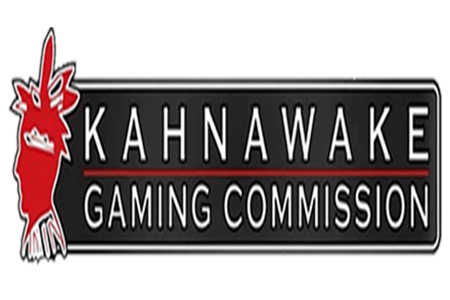
The KGC offers licenses to both online gaming operators and land-based gambling establishments. Although based in the Kahnawake Mohawk Territory, the KGC's licensing powers extend to gambling operators around the world, providing a framework for fair and secure operations. Online casinos, poker rooms, sportsbooks, and other gambling operators looking to operate under the KGC's jurisdiction must undergo a rigorous application process to prove their adherence to the KGC's standards and requirements.
The KGC offers several types of licenses depending on the nature of the operator’s services. These licenses include both B2C (Business to Consumer) and B2B (Business to Business), with requirements for each being tailored to the needs of the specific operation. To obtain a license, operators must comply with the KGC’s rigorous set of rules, which cover everything from financial solvency to fair gaming practices and responsible gambling measures.
Transparency and Fairness
One of the primary focuses of the KGC is to ensure that operators under its jurisdiction provide fair, transparent, and secure gaming experiences to players. To achieve this, the KGC requires operators to implement rigorous internal controls, including regular audits and independent testing of their gaming software. This ensures that games operate with a high level of fairness and that the outcome of games is determined by a trustworthy Random Number Generator (RNG).
The commission places great importance on transparency, requiring online casinos and gaming platforms to provide clear and concise terms and conditions, as well as transparent payout policies. This transparency helps players make informed decisions and ensures that operators are held accountable for any issues that may arise during gameplay.
Player Protection
The KGC is highly focused on player protection and strives to maintain a gaming environment that promotes responsible gambling. One of its main requirements for licensed operators is the implementation of responsible gambling tools. These include features such as self-exclusion programs, age verification systems, and deposit limits, all designed to protect vulnerable players from gambling-related harm.
Furthermore, the KGC mandates that online casinos display responsible gambling messages on their platforms and provide players with easy access to information on how to seek help for gambling addiction. If a player has a dispute with an operator, they can file a complaint with the KGC, which will then mediate the issue, offering an additional layer of protection and fairness.
Security and Financial Stability
Operators licensed by the KGC must also meet strict financial requirements to ensure that they can pay out winnings to players in a timely and secure manner. The commission mandates that licensed operators maintain sufficient financial stability and safeguard player funds by separating operational funds from player balances. This ensures that players’ funds are protected, even if the operator faces financial difficulties.
The KGC also enforces stringent security standards, requiring operators to implement advanced encryption technologies to protect players' personal and financial data. This commitment to security helps ensure that all transactions made on licensed gaming platforms are safe and secure.
The Kahnawake Gaming Commission is a well-respected and reliable regulatory body that has played a significant role in shaping the online gambling industry. By offering comprehensive licensing and regulation services, the KGC ensures that operators follow strict standards for fairness, transparency, and security. Players can feel confident when gambling at KGC-licensed casinos, as the commission places a high priority on protecting player rights, maintaining financial stability, and promoting responsible gambling. For operators, being licensed by the KGC is a mark of credibility and trust, showing that they are committed to upholding the highest standards in the online gaming world.
The Curacao eGaming Review
The Curacao eGaming license is one of the most widely recognized and popular gaming licenses in the online gambling industry. Established in 1996, Curacao was one of the first jurisdictions to offer a regulatory framework for online casinos and gaming operators. The licensing authority is governed by the Curacao government, and it has provided licenses to thousands of online gambling sites, making it a cornerstone of the online gaming ecosystem.
Licensing Authority and Overview
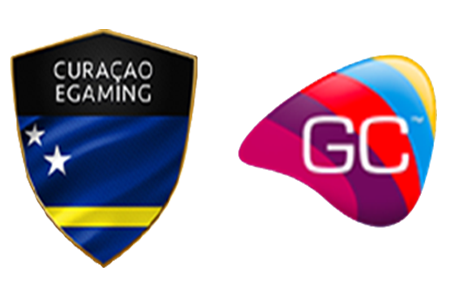
Curacao eGaming is officially regulated by the Curacao Ministry of Justice and operates as an offshore regulatory authority. While many jurisdictions around the world have followed suit and established their own licensing frameworks, Curacao remains a prominent choice for both new and experienced operators in the iGaming industry.
The Curacao eGaming license is often seen as a cost-effective option for operators who want to get licensed quickly and efficiently. It is one of the most straightforward and affordable licenses to obtain, which has made it especially popular with online casino operators, sportsbook platforms, and even cryptocurrency-based gaming websites.
License Types and Coverage
Curacao offers a single master license, which can be sublicensed to other entities. This unique setup means that a company can obtain a sublicense under the master license, rather than going through a lengthy application process for a new license. This structure has contributed to Curacao’s popularity as it allows both large and small operators to get licensed quickly and start offering online gambling services. The license covers a broad range of gambling activities, including online casinos, poker rooms, sportsbooks, and bingo halls. Furthermore, Curacao is known for being lenient with its licensing requirements, making it a preferred choice for operators offering a diverse array of gaming services.
Licensing Process and Requirements
The application process for a Curacao eGaming license is relatively simple and quick. Applicants need to provide essential business documentation, including proof of identity, financial stability, and a clean criminal record for the key individuals involved in the operation. While the regulatory process is less stringent compared to other jurisdictions like Malta or the UK, Curacao still has certain due diligence protocols in place to ensure that operators are legitimate and can meet the necessary operational standards.
One of the main advantages of obtaining a Curacao eGaming license is the lower licensing fees and ongoing operational costs compared to other jurisdictions. This makes it a highly attractive option for new online casinos and iGaming businesses, especially startups and companies operating on a smaller budget.
Fairness and Security
While Curacao is not as stringent in its regulations as some other gaming jurisdictions, it still requires licensed operators to adhere to basic fairness and security standards. Operators holding a Curacao eGaming license must implement Random Number Generators (RNGs) to ensure that their games are fair and provide unbiased outcomes. Moreover, licensed operators are also required to have secure systems in place to protect players’ personal and financial data, including encryption technologies.
However, it’s important to note that Curacao’s regulatory framework has received some criticism due to its relatively relaxed standards. Some players and industry observers argue that the lack of stringent regulations may result in less oversight and potential issues with disputes between players and operators. Despite this, many reputable online casinos still operate under the Curacao eGaming license, which speaks to the legitimacy of the jurisdiction.
Player Protection and Dispute Resolution
Curacao’s approach to player protection and dispute resolution is less comprehensive than that of other jurisdictions. While it does have some basic protections in place, it does not offer a dedicated dispute resolution service for players in the way that other regulators like the UK Gambling Commission or Malta Gaming Authority do. This can be a concern for some players, especially if they encounter issues with an operator.
That said, many Curacao-licensed casinos provide their own internal dispute resolution processes and often partner with independent organizations to mediate player complaints. Additionally, players can generally file complaints with Curacao’s licensing body, although the process may not be as streamlined or as well-supported as with other regulators.
The Curacao eGaming license remains a popular choice for online casino operators, especially those seeking a cost-effective and quick licensing solution. While the jurisdiction is not as stringent as some of its competitors, it still offers essential regulatory oversight, fair gaming practices, and security for players. However, the lack of a dedicated player protection system may raise concerns for some, and potential players should be cautious when selecting a Curacao-licensed operator. Ultimately, Curacao eGaming has been a key player in the online gambling industry and continues to offer a solid foundation for operators looking to enter the market. For operators who prioritize affordability and flexibility, Curacao remains one of the top licensing options available.
Alderney Gambling Control Commission Review
The Alderney Gambling Control Commission (AGCC) is one of the most respected and well-established online gambling regulatory bodies. Established in 2000, the AGCC oversees and regulates all forms of gambling on the island of Alderney, a small British Crown Dependency located in the Channel Islands. Known for its stringent regulatory framework and strong emphasis on fairness, transparency, and responsible gambling, the AGCC has earned a reputation as one of the top licensing authorities in the world.
Overview and Jurisdiction
Alderney is part of the Channel Islands, and although it is geographically close to France, it is a self-governing territory under British rule. The Alderney Gambling Control Commission was created with the aim of providing a solid, legally sound, and highly respected licensing regime for both online and land-based gambling operators. Alderney’s remote location and stable political environment make it an ideal choice for international online gambling companies looking for a reputable jurisdiction with minimal bureaucracy and strong legal protections.
The AGCC issues licenses for a variety of gambling activities, including online casinos, poker rooms, sportsbooks, bingo, and other online gaming platforms. Its licensing process is known for being thorough, requiring operators to meet strict standards related to financial stability, fairness, and technical systems before they are approved for an operating license.
Licensing Process and Requirements
The licensing process with the Alderney Gambling Control Commission is one of the most robust in the industry. Operators seeking to acquire a license from the AGCC must provide extensive documentation detailing their financial background, company structure, business plan, and the software systems they intend to use. Furthermore, the AGCC conducts rigorous due diligence to ensure that operators comply with all necessary legal, ethical, and technical requirements.
To obtain a license, operators must prove that they have the financial resources to meet the obligations of running an online gambling operation. This includes ensuring that there is enough capital to cover customer withdrawals, operational expenses, and potential liabilities. Additionally, operators must demonstrate that their games are fair and that they have robust security measures in place to protect players’ personal and financial data.
One of the advantages of obtaining an Alderney license is the high level of transparency and accountability that comes with the licensing process. Unlike some other jurisdictions, the AGCC operates with a focus on maintaining a fair playing field for both operators and players, ensuring that all stakeholders are treated equally and with respect.
Player Protection and Responsible Gambling
The AGCC is highly focused on player protection and enforces a variety of policies aimed at ensuring that online gambling is conducted fairly and responsibly. Licensees are required to implement stringent safeguards to protect players from fraud, underage gambling, and addiction. Operators must have policies in place for verifying player identities to prevent underage gambling and to combat money laundering. Additionally, they must provide responsible gambling tools that allow players to set limits on their deposits, wagers, and time spent on the site.
The AGCC also ensures that licensed operators have clear and easily accessible terms and conditions and offer players a transparent dispute resolution process in case issues arise. This is in contrast to some other licensing jurisdictions that may have less robust player protection mechanisms.
Fairness and Security
One of the main factors that sets the Alderney Gambling Control Commission apart from other regulatory bodies is its strict approach to game fairness and security. All operators licensed by the AGCC must employ certified Random Number Generators (RNGs) to ensure the fairness of games. Additionally, licensed casinos and gaming platforms must undergo regular audits and testing by third-party companies to ensure that their games provide fair outcomes and comply with industry standards.
Furthermore, the AGCC requires operators to have secure payment systems and data protection protocols in place, which include encryption and secure payment gateways to safeguard players' financial and personal information. These measures give players the confidence that their data and funds are protected when playing at Alderney-licensed casinos.
Reputation and International Recognition
The Alderney Gambling Control Commission is widely recognized as one of the most respected regulatory authorities in the online gambling world. Its commitment to fairness, transparency, and integrity has earned it the trust of both operators and players alike. Although the AGCC is a smaller regulatory body compared to giants like the UK Gambling Commission or the Malta Gaming Authority, its reputation for ensuring high standards has made it a preferred licensing jurisdiction for a number of well-known online gambling operators.
The AGCC stands out as one of the most reputable and trustworthy licensing authorities in the online gambling industry. With a rigorous licensing process, a strong emphasis on player protection, and a commitment to fairness and security, the AGCC has built a solid reputation for being a safe and reliable jurisdiction for online gambling. Operators seeking to be licensed by the AGCC can be assured that they will be held to high standards, while players can feel confident that they are engaging with operators who are committed to responsible gaming and providing fair, secure experiences.
Isle of Man Gambling Supervision Commission Review
The Isle of Man Gambling Supervision Commission (GSC) is one of the most prestigious and well-regarded regulatory authorities in the global online gambling industry. Established in 1962, the GSC is responsible for regulating all forms of gambling on the Isle of Man, a self-governing British Crown dependency located in the Irish Sea. Known for its comprehensive, transparent, and player-focused approach, the Isle of Man has become a popular destination for online gambling operators seeking a reputable and secure jurisdiction to base their operations.
Overview and Jurisdiction
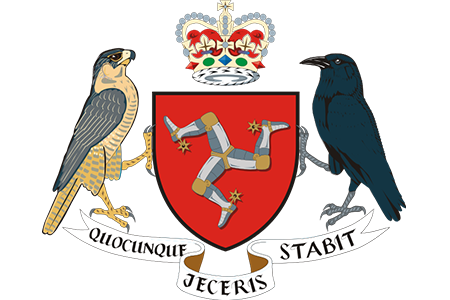
The Isle of Man is renowned for its stable political environment, robust legal system, and favorable tax policies, making it an ideal location for online gambling companies. The Gambling Supervision Commission oversees a variety of gambling activities, including online casinos, poker rooms, sportsbooks, and other gaming platforms. Its jurisdiction allows operators to offer gambling services to players worldwide while adhering to the rigorous standards set by the GSC.
The Isle of Man's gambling regulations are designed to ensure that operators maintain a high level of integrity, fairness, and transparency, ultimately fostering a safe environment for players. The GSC also requires licensed operators to implement responsible gambling practices and ensure that players are protected from fraud, addiction, and other harmful gambling behaviors.
Licensing Process and Requirements
The Isle of Man Gambling Supervision Commission is known for its thorough and highly respected licensing process. Operators seeking a license from the GSC must meet stringent financial, technical, and operational requirements. The process includes a detailed review of the operator's business structure, financial standing, and the software systems they intend to use for gaming operations. The GSC ensures that operators have the necessary resources to meet their financial obligations, including the ability to process player withdrawals promptly.
One of the key requirements for obtaining a license from the Isle of Man is that operators must demonstrate their commitment to providing fair and transparent gaming experiences. This includes using certified Random Number Generators (RNGs) for game outcomes, as well as undergoing regular third-party audits to verify compliance with industry standards. Additionally, operators must implement robust security measures to protect players' personal and financial information, ensuring that data is encrypted and stored securely.
Player Protection and Responsible Gambling
The Isle of Man Gambling Supervision Commission places a significant emphasis on player protection and responsible gambling. Operators licensed by the GSC are required to implement responsible gambling measures to prevent addiction and ensure that players can gamble safely. These measures include setting limits on deposits and wagers, offering self-exclusion programs, and providing resources for individuals who may be struggling with gambling addiction.
The GSC also mandates that operators offer clear and transparent terms and conditions for their players, including policies for resolving disputes and addressing player complaints. This commitment to transparency helps to ensure that players can trust licensed operators to act fairly and responsibly.
Furthermore, the Isle of Man's regulations require operators to verify the identity of their players to prevent underage gambling and to comply with anti-money laundering laws. These efforts are aimed at maintaining the integrity of the gambling market and ensuring that operators adhere to the highest ethical standards.
Security and Fairness
The Isle of Man Gambling Supervision Commission is committed to ensuring that online gambling operators provide a fair and secure gaming experience for players. All licensed operators are required to use third-party auditors to verify that their games are fair and that they comply with the standards set by the GSC. The commission also mandates that operators employ secure payment methods and encryption technologies to protect players' financial transactions and personal data.
The GSC's strict regulations help ensure that players can enjoy a secure and transparent gaming experience. By enforcing regular audits, requiring certification of software systems, and ensuring the implementation of robust security protocols, the GSC fosters an environment of trust and reliability in the Isle of Man's gambling industry.
Reputation and Global Recognition
The Isle of Man Gambling Supervision Commission is widely recognized as one of the leading licensing authorities in the online gambling industry. Its reputation for maintaining high standards of fairness, transparency, and player protection has earned it the trust of both operators and players alike. While the Isle of Man is a relatively small jurisdiction compared to others like Malta or the United Kingdom, its licensing authority is highly respected within the industry.
Operators licensed by the GSC are often regarded as trustworthy and reliable, as the licensing process ensures that they meet the highest standards of integrity and compliance. Players can be confident that they are engaging with operators who are committed to providing fair and secure gaming experiences.
The Isle of Man Gambling Commission is a reputable and respected regulatory authority in the online gambling industry. Its thorough licensing process, commitment to player protection, emphasis on fairness, and focus on responsible gambling make it one of the most trusted licensing bodies in the world. To obtain a license from the Isle of Man can be assured that they will be held to high standards of compliance and accountability, while players can feel confident that they are playing at casinos and gaming platforms that prioritize fairness, security, and transparency. The GSC’s reputation and global recognition make it a leading choice for operators and players alike in the ever-evolving online gambling industry.
How We Test & Review Online Casino Gaming Licenses?
When it comes to evaluating and reviewing online casino gaming licenses, our process is built on a thorough and systematic approach to ensure that the casinos we recommend meet the highest standards of integrity, fairness, and security. Online gambling is a multi-billion-dollar industry, and understanding the licenses behind online casinos is crucial for players looking to enjoy a safe and reliable gaming experience. In this review, we will take you through the critical steps and factors that we consider when assessing gaming licenses in the online casino industry.
The Importance of Online Casino Licenses
The licensing of online casinos plays an essential role in ensuring the security, fairness, and legitimacy of gaming operations. A reputable casino license guarantees that the casino adheres to the laws and regulations of the jurisdiction in which it is licensed, and that it follows established standards for player protection, responsible gambling, and game fairness. Without proper licensing, an online casino cannot be trusted to operate within legal and ethical boundaries. Therefore, it is crucial to assess the validity and reliability of the gaming licenses when reviewing any casino.
The Licensing Authorities We Consider
The first step in our review process is identifying the licensing authorities under which an online casino operates. Some of the most respected and trusted licensing authorities include:
- Malta Gaming Authority (MGA) – Known for its robust regulatory framework, the MGA is one of the most trusted authorities in the iGaming industry.
- UK Gambling Commission (UKGC) – One of the most rigorous licensing bodies, ensuring that operators follow strict protocols for fairness and player protection.
- Curacao eGaming – A popular licensing authority known for its flexible and affordable licenses, though it is less strict compared to other regulators.
- Kahnawake Gaming Commission (KGC) – Based in Canada, KGC provides licenses to casinos operating internationally, ensuring compliance with its standards.
- Alderney Gambling Control Commission (AGCC) – Known for its stringent auditing process and high standards for online gaming operations.
We analyze the reputation, standards, and player protection mechanisms of each licensing authority to determine how well they regulate casinos.
Key Elements We Test During the Review Process
Once the licensing authority is identified, our next step is to analyze how the casino operates under that license. Several critical aspects are taken into account:
- Licensing Transparency and Validity We check the validity of the license by verifying the registration number and confirming whether the casino holds a current and valid license issued by a recognized authority. A legitimate online casino will provide full transparency regarding its licensing status, and this information should be readily available on its website.
- Regulatory Standards and Compliance Every licensing authority has its own set of regulatory requirements and standards for casino operators. For example, some require casinos to undergo regular third-party audits of their game outcomes, while others focus on responsible gambling measures or player protection. We review how well the casino adheres to these standards and whether it complies with all the necessary regulations. This includes looking at anti-money laundering (AML) policies, data protection practices, and responsible gambling measures like self-exclusion programs.
- Fairness and Game Integrity Licensing authorities mandate that casinos use certified Random Number Generators (RNGs) to ensure that games are fair and that outcomes are random. We assess whether the online casino has its games regularly audited by independent third-party companies like eCOGRA or iTech Labs. Casinos that maintain transparency with these audits are often considered more trustworthy.
- Player Protection and Dispute Resolution A good gaming license will always include provisions for player protection, including handling disputes between players and casinos. We examine whether the casino provides clear and transparent terms of service, has accessible dispute resolution mechanisms, and includes processes to deal with player complaints fairly. Some licenses, such as those from the UK Gambling Commission, offer extra layers of protection by requiring casinos to have a dedicated complaint resolution process.
- Responsible Gambling Measures We verify that casinos licensed under reputable authorities implement responsible gambling practices. These measures may include features like deposit limits, self-exclusion tools, and links to gambling addiction support organizations. A reputable casino will ensure that players can access these tools easily and have clear instructions on how to use them.
- Security Standards Online casinos are required to maintain high-security standards to protect player data and transactions. We ensure that the casino employs the latest encryption technologies, such as SSL encryption, to protect sensitive data. Additionally, we look into their payment methods to see if they offer secure and reliable banking options for deposits and withdrawals.
How We Use This Information?
After gathering and analyzing the relevant information, we create a comprehensive review of the online casino and its licensing authority. The goal is to provide our readers with a detailed, unbiased view of the casino’s licensing status and operational standards. Casinos with legitimate, respected licenses will usually score higher in our evaluations due to the higher levels of security, fairness, and player protection associated with these regulatory bodies.
While a casino may hold a license from a recognized authority, we also consider factors like player feedback, industry reputation, and the overall user experience. For instance, a casino with an MGA license may have a good standing in terms of fairness and player protection, but if it fails to offer a solid gaming experience or has unresolved player complaints, we will report that as well.
In conclusion, the process of reviewing online casino gaming licenses is a critical aspect of our overall evaluation of online casinos. We look beyond the mere presence of a license and analyze how well the casino adheres to the standards set by the licensing authority. By assessing transparency, compliance, fairness, and player protection, we help players make informed decisions about where to play, ensuring a secure and enjoyable gambling experience.

How To Make A Complaint To The License Holder?
If you're facing issues with an online casino, knowing how to make a complaint to the license holder is crucial for resolving the matter. By understanding the process and knowing which regulatory body governs the casino, you can ensure that your complaint is handled professionally. Whether it’s a payment dispute, unfair practices, or bonus-related issues, filing your complaint with the right authority can bring about a fair resolution.
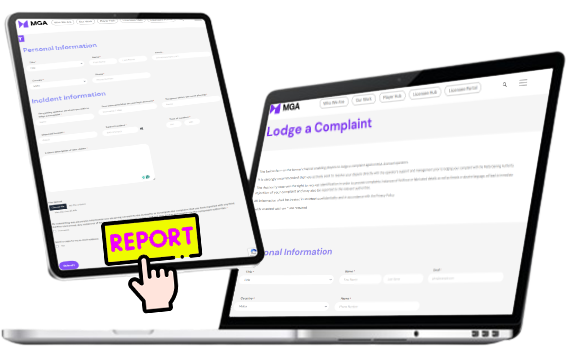
Our guide walks you through each step, helping you gather the necessary evidence and contact the correct gaming commission for a swift and effective resolution. Let us help you navigate the process seamlessly! When playing at online casinos, players expect a safe, fair, and responsible gambling environment. However, there may be occasions when things don’t go as expected, and you might face issues such as delayed payments, unfair practices, or problems with bonuses.
In these situations, it’s important to know how to file a complaint with the relevant authority or casino license holder. Here’s a step-by-step guide on how to make a complaint to the license holder of an online casino and how to determine which license holder to contact.
Understanding the Role of a Casino’s License Holder
An online casino’s license holder is typically a regulatory authority or gaming commission that oversees the operation of the casino. This entity ensures that the casino adheres to industry standards, complies with gambling laws, and operates in a fair and transparent manner. They are also responsible for resolving player disputes in certain cases. Some well-known license holders include the Malta Gaming Authority (MGA), the UK Gambling Commission (UKGC), and Curacao eGaming, among others. When an online casino is licensed, the operator must comply with the rules and regulations of that specific licensing body. In the event of a dispute or complaint, the license holder is the first point of contact for resolving the issue.
Step 1: Attempt to Resolve the Issue with the Casino
Before contacting the licensing authority, you should first try to resolve the issue directly with the casino. Most reputable casinos have a customer support team that can assist you with complaints. The process typically involves:
- Contacting customer support: Reach out to the casino's customer service team via live chat, email, or phone. Describe the issue clearly and provide all relevant information, such as your account details, transaction history, and any screenshots or documentation that support your claim.
- Following the casino’s complaint procedure: Many casinos have a formal complaint process in place. This process may involve submitting a written complaint via email or through a dedicated complaints form on their website. Make sure to follow this process to ensure your issue is taken seriously.
- Allowing time for resolution: Casinos may take a few days to investigate the issue and provide a resolution. Be patient, but also stay in communication with them to ensure your complaint is being handled.
If the issue is not resolved or if you feel that the response from the casino is unsatisfactory, you may need to escalate the matter to the licensing authority. The next step is to identify the casino’s license holder.
Step 2: Determine the Casino’s License Holder
Each online casino is licensed by a regulatory authority, and this information is usually displayed on the casino’s website. To find out which license holder governs the casino, you can look for:
- License details on the website: Check the casino’s footer, terms and conditions page, or “About Us” section. Most online casinos will display their license number and the name of the licensing authority there. Look for information like “Licensed by the Malta Gaming Authority” or “Licensed by the UK Gambling Commission.”
- Verification of the license: Some licensing bodies allow players to verify the validity of the casino’s license through their official websites. For example, you can visit the MGA’s website to check whether a casino is licensed in Malta or check the UKGC’s online register of licensed operators. This helps ensure that the casino is operating legally and under the supervision of a recognized regulatory body.
Once you know the licensing authority, you can proceed to file your complaint with the relevant body.
Step 3: Filing a Complaint with the License Holder
Each licensing body will have a specific procedure for filing complaints against online casinos. Here’s a general outline of what to expect when submitting a complaint:
- Gather evidence: Before filing your complaint, ensure that you have all necessary documentation to support your claim. This could include screenshots of the issue, transaction records, chat logs, email correspondence, and any other relevant information.
- Follow the correct procedure: Each licensing authority has its own complaint procedure. For example:
- Malta Gaming Authority (MGA): The MGA allows players to file complaints through their online platform. You can fill out an online complaint form and provide all the details about your issue. They will investigate the matter and liaise with the casino.
- UK Gambling Commission (UKGC): If you’ve been unable to resolve a complaint with a UK-licensed casino, you can escalate the issue to the UKGC. You can submit your complaint using the UKGC’s complaints form on their website.
- Curacao eGaming: Although Curacao eGaming is considered less stringent than other regulators, players can still file complaints via the casino’s licensee’s page. However, Curacao’s licensing authority does not have a formal, centralized complaints process for players. Players may need to directly contact the casino's licensee for assistance.
- Alderney Gambling Control Commission (AGCC): Players can file complaints with the AGCC through their website. The AGCC will investigate the issue and work with the casino to ensure that it is resolved.
- Isle of Man Gambling Supervision Commission: The Isle of Man Gambling Supervision Commission offers players the option to file complaints against casinos that are licensed in the Isle of Man. You can contact them via email or their complaints page.
- Provide clear and detailed information: In your complaint, make sure to include your full details, the casino's name, the nature of the issue, and any relevant documentation. Be concise but thorough in your description.
- Follow up: If you don’t hear back within a reasonable amount of time, follow up with the regulatory authority. They are obligated to investigate and, in many cases, mediate between you and the casino.
Step 4: Understanding the Outcome
Once you have submitted your complaint, the licensing body will usually conduct an investigation. Depending on the authority and the complexity of the issue, this can take anywhere from a few weeks to a few months. The regulator will assess whether the casino has violated any of the licensing rules or regulations. If the casino is found to be in breach of its obligations, the licensing authority may impose penalties, such as fines, warnings, or even revoke the casino's license.
In some cases, the licensing authority may mediate between the player and the casino to find a resolution. If the complaint is not upheld or if the regulator cannot intervene, you may need to seek further legal advice or consider taking the matter to an independent alternative dispute resolution (ADR) service.
Filing a complaint with an online casino’s license holder is a vital step if you feel that your issue has not been resolved by the casino itself. By following the steps outlined above, you can ensure that your complaint reaches the appropriate authority. Always make sure to gather all necessary evidence and follow the correct procedure for the specific licensing body. While the process can take some time, it is important to remember that regulatory authorities are there to ensure fair and responsible gambling practices, and they can hold casinos accountable for violations.
How To Get An Online Casino Gaming License?

Getting an online casino gaming license is a crucial step for any operator who wishes to establish a legitimate, trustworthy gambling platform. Obtaining a gaming license ensures that the casino adheres to strict regulations set forth by licensing authorities, which guarantees fairness, security, and the protection of players. This process can vary depending on the jurisdiction and regulatory body chosen by the casino operator. In this guide, we will walk through the essential steps involved in obtaining an online casino gaming license.
Choose a Licensing Jurisdiction
The first step in getting an online casino gaming license is deciding on the jurisdiction under which to apply for the license. Different countries and territories have varying regulations, costs, and reputations, so it’s important to choose one that suits the needs of your casino and players. Some of the most well-known jurisdictions for online casino licenses include:
- Malta: The Malta Gaming Authority (MGA) is one of the most respected licensing bodies in the iGaming industry. It offers licenses for various types of gaming activities, including sports betting and online casinos.
- United Kingdom: The UK Gambling Commission (UKGC) is known for its strict regulatory framework and player protection laws.
- Curacao: Curacao eGaming is a popular jurisdiction for many new online casinos because of its relatively lower costs and simpler regulatory process, though it is often seen as less stringent than others.
- Alderney: The Alderney Gambling Control Commission (AGCC) is known for its high standards of regulation and player protection.
- Isle of Man: The Isle of Man Gambling Supervision Commission is highly regarded for its transparent and robust regulatory framework.
Once you have chosen a jurisdiction, you must familiarize yourself with the specific requirements and regulations associated with that jurisdiction. Each licensing body will have different application processes, fees, and documentation requirements.
Meet Legal and Financial Requirements
Before applying for a gaming license, your online casino must meet several legal and financial criteria set by the chosen licensing body. These criteria are designed to ensure that the casino operates fairly, securely, and responsibly. Some common requirements include:
- Company Formation: You will need to form a legal entity, such as a limited liability company (LLC) or corporation, in the jurisdiction where the license is being applied for. This often involves registering with the appropriate government authorities and paying any required fees.
- Financial Stability: Most licensing authorities require proof of financial stability. This can include bank statements, business plans, and other documentation to demonstrate that your casino can cover its operating costs, including payouts to players.
- Business Operations: You must have a clear business structure and management team in place. Many regulators will require details on the company’s directors, key staff members, and the structure of your operations.
- Payment Solutions: A reliable and secure payment processing system must be in place. This includes offering a variety of payment methods for players, such as credit cards, e-wallets, and bank transfers.
Submit an Application
Once you have met the legal and financial requirements, the next step is to submit an application to the licensing body. The application process typically involves providing extensive documentation, including:
- Application Form: A completed application form detailing information about your company, management team, and operations.
- Financial Documents: Financial statements, proof of funds, and other documents to verify your financial stability.
- Business Plan: A detailed business plan outlining your casino’s business model, marketing strategies, target market, and growth projections.
- Compliance with Gambling Laws: Evidence that your casino complies with all relevant gambling laws, including anti-money laundering (AML) and responsible gambling regulations.
- Software and Game Audits: Some jurisdictions require an audit of the gaming software to ensure that the games are fair and use a certified Random Number Generator (RNG). You may need to provide reports from independent testing agencies such as eCOGRA or iTech Labs.
Pay Licensing Fees
The cost of obtaining an online casino gaming license varies depending on the jurisdiction and the scale of the casino operation. Licensing fees can range from a few thousand to several hundred thousand dollars, and they are typically paid annually. These fees help cover the regulatory costs of maintaining oversight over online casinos and ensuring compliance with gambling laws.
In addition to the licensing fees, you may also need to pay for background checks on the casino’s directors and key personnel, software audits, and other compliance-related expenses. The fees are generally non-refundable, even if the application is rejected.
Background Checks and Due Diligence
Licensing authorities perform extensive background checks on the casino’s ownership, management, and financial history. This is to ensure that the individuals behind the casino are trustworthy and have a clean record, particularly when it comes to financial matters and compliance with gambling regulations. This due diligence process can take several weeks, and the authorities will scrutinize your company’s finances, directors, and any connections to criminal activity or illegal operations.
Application Review and Approval
Once the application is submitted and all the required documents and fees are provided, the licensing authority will review the application in detail. This process can take several weeks to months, depending on the jurisdiction and the complexity of your business.
The licensing authority will assess your business’s compliance with all legal, financial, and operational requirements. If everything is in order, the licensing authority will grant the casino a gaming license, allowing it to operate legally within that jurisdiction.
If the application is denied, the casino operator may appeal the decision or apply for a license in another jurisdiction.
Ongoing Compliance
After receiving a gaming license, online casinos must continue to comply with the regulations set by the licensing authority. This includes regular reporting, software audits, maintaining secure payment systems, and ensuring that players are protected through responsible gambling practices.
Many jurisdictions also require casinos to undergo regular audits to ensure compliance with fairness and game integrity standards. Casinos that fail to meet these ongoing obligations may risk losing their license or face penalties.
Getting an online casino gaming license is a complex but essential process for operators who want to run a legitimate and trustworthy online gambling platform. By following the necessary steps, including choosing a licensing jurisdiction, meeting legal and financial requirements, submitting an application, and paying the required fees, casino operators can establish their business on a solid legal foundation. Ultimately, a gaming license not only ensures compliance with gambling laws but also provides players with the confidence that they are gambling in a fair and secure environment.

The History Of Online Casino Gaming Licenses
The history of online casino gaming licenses is deeply intertwined with the evolution of the internet and the growing popularity of online gambling. As the Internet became more accessible in the late 1990s, the rise of online casinos presented new challenges in terms of regulation and consumer protection. While land-based casinos had long been regulated by established gaming authorities, the internet introduced a more complex issue: how to regulate gambling in a digital space that transcends national borders.
In the early days of online casinos, the industry largely operated in a legal gray area. Many online casinos were set up in jurisdictions where gambling laws were either non-existent or loosely enforced. This lack of regulation created a host of problems, including issues with fraud, unfair practices, and the inability to resolve disputes between players and casinos. As online gambling grew, so did the need for a regulatory framework that could ensure fair play, protect players, and prevent illicit activities such as money laundering.
The first significant step toward regulating online casinos came with the establishment of the Kahnawake Gaming Commission (KGC) in 1996. Based in the Mohawk Territory of Kahnawake in Canada, this commission became one of the first authorities to issue online gambling licenses. The KGC quickly became recognized for its commitment to enforcing strict regulatory standards and providing a safe environment for players. Its creation marked a turning point for online casinos, offering a model for how gambling could be regulated in the digital age.
Following the KGC’s lead, other jurisdictions began to recognize the need for regulation in the growing online gambling industry. In 2001, the Isle of Man established the Isle of Man Gambling Supervision Commission, another early mover in the online gambling regulatory space. The Isle of Man's licensing regime was designed to attract reputable online gambling operators, offering a well-regulated environment with robust legal and financial frameworks. The commission introduced stringent requirements for operators, including the need to meet high standards for financial stability, fairness in games, and the protection of player funds.
Shortly after the Isle of Man, Malta emerged as another key player in online gambling regulation. In 2004, the Malta Gaming Authority (MGA) was established, further solidifying the global landscape of online gaming licenses. The MGA quickly became one of the most respected regulators in the world, offering a comprehensive licensing process that addressed both online casinos and sports betting platforms. The authority’s strict requirements, including the implementation of responsible gaming measures, consumer protection, and anti-money laundering protocols, made it one of the most trusted jurisdictions for online gambling operators. Malta's reputation as a center for gaming regulation attracted numerous international operators, and it remains one of the most prominent licensing jurisdictions to this day.
Around the same time, Curacao, a small island in the Caribbean, also began to offer licenses for online gambling. Curacao eGaming became one of the more popular licensing authorities for online casinos, especially for those seeking a more affordable and straightforward licensing process. While Curacao’s licensing framework was less stringent than that of jurisdictions like Malta or the Isle of Man, it attracted many online casinos due to its cost-effectiveness and ease of obtaining a license. This made it a popular choice for newer or smaller operators.
Over time, the regulatory landscape for online casinos has continued to evolve, with more jurisdictions offering licenses and regulatory frameworks. For example, the Alderney Gambling Control Commission (AGCC) in the Channel Islands has built a reputation for its strict standards and effective enforcement, offering licenses to some of the largest online gambling companies in the world. Other countries, such as the United Kingdom, have also developed robust licensing frameworks, creating a competitive environment where online casino operators must comply with a variety of regulations to operate legally in different markets.
The expansion of online casino gaming licenses reflects the growing importance of regulation in the industry. As the market matured, regulators recognized the need to ensure that online casinos operated with transparency, fairness, and accountability. Licensing bodies now require casinos to undergo regular audits, implement random number generators (RNGs) to ensure fairness, and maintain secure payment systems. These measures are designed to protect both players and operators, creating a safer and more transparent environment for everyone involved.
Today, online casino gaming licenses are issued by numerous jurisdictions around the world, each with its own set of rules and requirements. Operators often choose licensing jurisdictions based on factors such as tax benefits, regulatory requirements, and the reputation of the licensing body. The ongoing growth of online gambling, coupled with increasing scrutiny from both governments and players, continues to drive the evolution of licensing frameworks. As the industry expands, the history of online casino gaming licenses will likely continue to be shaped by the need for stronger regulation, greater consumer protection, and international cooperation.
Our Final Verdict & Final Thoughts
The best-known online casino gaming licenses play a crucial role in shaping the integrity, trustworthiness, and transparency of the online gambling industry. As the popularity of online casinos continues to rise, the importance of robust regulation becomes even more vital. These gaming licenses not only protect players by ensuring fair play, secure transactions, and responsible gaming, but they also set the standard for operators seeking to establish credibility in a highly competitive market. In our final verdict, we can confidently say that the best-known gaming licenses are instrumental in ensuring that online gambling is both safe and enjoyable for players worldwide.
One of the key takeaways when considering the most respected licenses is the recognition and influence they hold. Jurisdictions such as the Malta Gaming Authority (MGA), the Isle of Man Gambling Supervision Commission, and the Kahnawake Gaming Commission have established themselves as pillars in the regulation of online casinos. These regulatory bodies have set high standards for operators, demanding transparency, fairness, and accountability.
Players can be confident that any online casino holding one of these licenses has undergone rigorous scrutiny and operates under strict regulatory requirements designed to protect them. For example, the MGA is known for its comprehensive approach to licensing, which covers everything from the financial stability of operators to the implementation of responsible gaming practices. Similarly, the Isle of Man Gambling Supervision Commission has earned a strong reputation for upholding high operational standards, ensuring that licensed casinos operate with integrity.
Moreover, the presence of such licenses significantly impacts the reputation of online casinos. Casinos that hold these licenses are viewed as trustworthy and reliable, as they are subject to regular audits and inspections to ensure compliance with local and international regulations. This gives players the peace of mind that their funds are safe, their personal information is protected, and they are playing in a fair environment. A casino without a reputable license, on the other hand, often raises concerns about its credibility and legitimacy, which could lead to players avoiding it altogether.
However, it is also important to consider the diversity of licenses available in the industry. While licenses from jurisdictions like Malta and the Isle of Man are highly respected, other licenses, such as those issued by Curacao, Alderney, and Gibraltar, are also popular among operators. Each licensing body has its own set of standards and regulations, and while some may be seen as more lenient than others, they still provide a legal framework within which online casinos can operate. Curacao, for example, offers more accessible licensing, making it a popular choice for newer operators or those looking for a more cost-effective option.
While this can be beneficial for startups, it may not offer the same level of player protection and regulatory oversight as more stringent authorities. Ultimately, the best-known gaming licenses share a common goal: to ensure that players have access to a fair, transparent, and secure gaming environment. These licenses are not just about ensuring the legitimacy of the operator but also about guaranteeing that players' rights are protected. Whether it's through enforcing responsible gaming practices, ensuring prompt and fair payouts, or maintaining strict anti-money laundering measures, a reputable license holder provides a solid foundation for an online casino’s operations.
The importance of choosing a licensed casino cannot be overstated. Players should always look for casinos that are licensed by one of the leading regulatory bodies, as this is a clear indicator of a casino’s commitment to upholding industry standards. Moreover, it’s vital to remember that these licenses are not static; they are continually reviewed and updated to reflect changes in the industry and to address emerging risks. As such, a top-tier gaming license provides a dynamic safeguard that evolves alongside the growing and ever-changing online gambling landscape.
In conclusion, the best-known online casino gaming licenses are indispensable in ensuring the ongoing development and success of the online gambling industry. They provide a vital layer of protection for players, holding operators accountable and ensuring that they adhere to high standards of fairness, security, and transparency.
These licenses are a testament to the growth and maturation of the industry, demonstrating that online gambling can be both entertaining and safe. By choosing casinos with reputable licenses, players can enjoy a secure and enjoyable gambling experience, knowing that they are engaging with trusted and compliant operators. The continued evolution and prominence of these licenses will only serve to strengthen the industry's credibility and the trust players place in it.
The Most Frequently Asked Questions
Q: What are online casino gaming licenses?
A: Online casino gaming licenses are legal permits issued by regulatory authorities that authorize casinos to operate legally in certain jurisdictions. These licenses ensure that the casino follows local laws and regulations, providing a secure and fair environment for players.
Q: Why are online casino gaming licenses important?
A: These licenses are essential because they guarantee the casino is operating legally and is subject to oversight. They ensure fair play, secure transactions, and the protection of player funds, offering players peace of mind when engaging with the casino.
Q: What is the Malta Gaming Authority (MGA)?
A: The Malta Gaming Authority is one of the most respected and widely recognized regulatory bodies for online casinos. It ensures that licensed casinos operate fairly, transparently, and securely while protecting players’ rights through strict rules and regulations.
Q: How does the Kahnawake Gaming Commission (KGC) operate?
A: The Kahnawake Gaming Commission, based in Canada, regulates online gambling in the Kahnawake territory. It issues licenses to casinos that meet its strict standards for fairness, player protection, and responsible gaming practices.
Q: What makes the Curacao eGaming license unique?
A: Curacao eGaming offers one of the most accessible and affordable licenses for online casinos, making it popular among newer operators. While it is considered a more lenient jurisdiction compared to others, it still ensures basic compliance with gaming regulations.
Q: Why is the Isle of Man Gambling Supervision Commission (GSC) highly regarded?
A: The Isle of Man Gambling Supervision Commission is known for its stringent licensing process and rigorous regulatory standards. It ensures that licensed casinos provide a secure environment for players and comply with financial and operational rules to maintain integrity.
Q: How do casinos obtain an online gaming license?
A: To obtain a gaming license, online casinos must apply to a regulatory authority, submit required documents (such as proof of financial stability, software fairness, and anti-money laundering policies), and undergo audits to ensure they meet legal and operational standards.
Q: Can online casinos hold multiple gaming licenses?
A: Yes, many online casinos hold licenses from multiple jurisdictions to operate legally in different regions. This helps them reach a broader audience and comply with various legal requirements in multiple markets.
Q: What are the benefits of a Curacao eGaming license?
A: A Curacao eGaming license allows online casinos to operate with a relatively low-cost regulatory framework. It is attractive to smaller or new operators, offering access to a global audience, although it is considered less stringent than licenses from other jurisdictions.
Q: Does a license from the Alderney Gambling Control Commission ensure player protection?
A: Yes, the Alderney Gambling Control Commission enforces high standards for online casinos, ensuring that they protect players’ personal data, offer fair gameplay, and maintain the financial stability needed for smooth operations.
Q: What role does the Belgium Gaming Commission (Commission des jeux de Hasard) play?
A: The Belgium Gaming Commission regulates online gambling in Belgium, ensuring that licensed casinos comply with strict legal requirements. It is responsible for ensuring player protection, preventing gambling addiction, and overseeing fair gaming practices.
Q: Is it safe to play at an online casino with a valid gaming license?
A: Generally, yes. Playing at an online casino with a valid and respected license ensures that the casino operates within a legal framework and adheres to industry standards for fairness, security, and responsible gaming.
Q: How often do online casino licenses get renewed?
A: Online casino licenses typically require renewal on an annual or biennial basis, depending on the jurisdiction. Casinos must undergo regular audits to ensure ongoing compliance with the regulations set by their licensing authority.
Q: How do online casino gaming licenses prevent fraud?
A: Licensing authorities enforce strict anti-fraud measures, including the implementation of secure payment systems, regular audits, and transparency requirements. These measures protect players from fraudulent practices and ensure that casinos operate fairly.
Q: Can I trust casinos with a license from the Isle of Man?
A: Yes, casinos with a license from the Isle of Man are considered trustworthy. The Isle of Man Gambling Supervision Commission is known for its rigorous standards and commitment to protecting players’ rights, ensuring that licensed casinos provide a safe and secure gaming environment.






